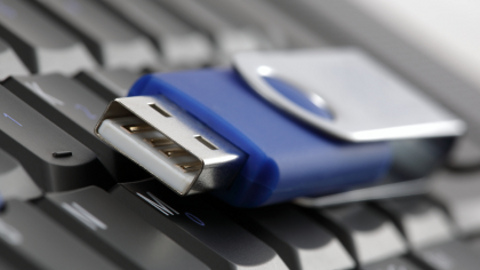What the Pirate Party demands isn’t rocket science. We are demanding an end to the Wild West treatment of the Internet. We are demanding that the same laws that have applied offline for centuries also apply online.
What’s boggling the mind is how that can be so hard to achieve politically.
The laws regulating what happens when I write a letter and post in the mail have been around for centuries, literally. We demand that the same laws apply to the modern equivalent.
When I write that letter, I and I alone choose whether I identify myself as sender in the letter, on the outside on the envelope, both, or neither. It is my prerogative alone and nobody may track the letter backwards unless I choose to make it possible. We demand that the same rules apply online as offline.
When I put that letter in the mailbox, no European government has the right to demand that I identify myself and note that I am putting a letter in the mail. We demand that the same rules apply online as offline.
In the route through the postal service, regardless of whether I have chosen to identify myself on the envelope or not, nobody has the right to start tracking who is talking to whom. Not because of physical constraints, in the case where I identify myself, but because of privacy laws. We demand that the same rules apply online as offline.
Nobody but the addressed recipient has the right to open and examine the contents, if I am not previously under documented and specific suspicion of a serious crime (at which point only law enforcement may intercept it). We demand that the same rules apply online as offline.
What does this mean?
It means a firm rejection of traffic data retention and similar wanton surveillance without documented and concrete suspicion of a crime.
It means a firm rejection of the notion that identity must be surrendered in order to gain freedom of speech. First, freedom of speech is unconditional and you can’t condition it to giving up the speaker’s identity, just as you can’t condition it to giving up some amount of money. It is unconditional. Second, the freedom of the press depends on the ability to protect identities of sources, and governmental authorities can’t and shouldn’t be trusted with eavesdropping on this. Third, in order to have meaningful and society-advancing debates of ideas, they must be detached from the sender’s identity, in particular on stigmatized subjects.
It means an acceptance that sealed letters can be used to send copyrighted works, such as books, poems and drawings, and always have. This right takes clear and strong precedence over the copyright monopoly, as it always has.
It means an acceptance and embrace of our documented fundamental rights and that they apply to all parts of society, in particular the online part.
Come on, politicians. These laws are there already and have been for generations.







[…] This post was mentioned on Twitter by Falkvinge and lillebrorsan, Razor. Razor said: Falkvinge: Not Rocket Science: Same Laws Online, Offline http://bit.ly/hZ8lXT […]
“We are demanding that the same laws that have applied offline for centuries also apply online.”
OK so you want harder punishment for internet-piracy?
I want the same laws to apply online and offline. In particular, that means respect for our fundamental rights as laid out in the European Convention of Human Rights and similar documents.
How you interpret that to mean harder punishments online is beyond me.
Internet based copyright infringement currently has the same punishment as offline based copyright infringement so i don’t get how you came to your conclusion.
“I want the same laws to apply online and offline. How you interpret that to mean harder punishments online is beyond me.”
But as you say you want the same rules online and offline then you must be accepting for stricter enforcements against piracy online. The internet has been the Wild West for far too long..
How much of the piracy do you believe happens online? I would guess a small percentage. Usually people just synchronize their terabyte discs. Downloading takes to long… Or record TV, Or make mix tapes. All these, with the possible exception of the terabyte thing, are even excepted by the law. So an exception for private copying on the internet would be a good start. Then we may discuss privacy rules the same as for the postal system without people with to much money and interests interfering.
“How much of the piracy do you believe happens online?”
A lot…
Yes, probably a lot, still not anywhere near the major part…
“freedom of speech is unconditional”, you say. How very wrong. There’s fraud, defamation, personal information (PUL), and, depending on your point of view, child porn. Would you like to allow those types of speech unconditionally, too?
You are correct, in the sense that “Sticks and stones may hurt my bones, but words can never hurt me” is not a legal term. You can be held accountable for what you have said.
But the key words are “have said”. Nobody can condition your opening your mouth in the first place, even though you can be held accountable if you distribute, say, medical records or military data.
You’re missing the point guys!
If I put something in an envelope, seal it, and send it to my friend anywhere in the world (except some dictatorships) no person has the right to open that letter except the recipient. Unless of course I am ” under documented and specific suspicion of a serious crime”. In that case the police (or similar law enforcement agency) can intercept and open the letter (copyright infringement is not serious enough).
But just because I happen to send this letter with the help of an electronic medium this for some mysterious reason does not apply.
It means an acceptance that sealed letters can be used to send copyrighted works, such as books, poems and drawings, and always have. This right takes clear and strong precedence over the copyright monopoly, as it always has.
Everything in your world boils down to this – your “right” to listen to music, watch movies, read book etc w/out paying for it. But I do believe this is the first time you cinfirmed that this is your reason to be opposed to “Datalagringsdirektivet”.
Also – custums officers have the right to open your letters/packages even if you are not “under documented and specific suspicion of a serious crime”, so you aren’t really truthful Rick.
I must say I’m amazed by your deduction capabilities.
The reason that the Association of Reporters, the Attorney’s Association, The Green Party and the Pirate Party are vehemently opposing mass wanton surveillance is, of course, that we all demand to not have to pay for music.
This is a typical trait seen in all reporters. And attorneys. They are all fueled by the passion of not having to pay for music. You nailed it!
On the other hand, you could also observe that we are net activists, and that net activists have been particularly active all over the world in supporting communication in Tunisia, Egypt, Yemen, Syria, and Albania over the past week.
For anyone with half an ear to the ground, the events unfolding in those countries should make it painfully obvious why we think data retention is an abomination.
Customs may open letters an packages to check for contraband. So it may well be considered “under documented and specific suspicion of a serious crime”. They are not allowed to under any circumstances actually read any information contained. Not even the police during a search is allowed to open any sealed letter. Thought they may confiscate the letter and ask an prosecutor for permission to open it.
And they may also open packages containing legal objects (i.e. contact lenses – happened to me) and send you an invioce for the sales tax. Not dokumented and certainly not a serious crime, also not very different from stopping the download of a copyrighted file IMO.
I get the feeling that some of you are just guessing and making bold statements without knowing what you are talking about. Mistakes like these makes it very hard to take you seriously even in the cases where you do have a valid point.
Contraband needs not to be illegal. It is the fact that you are not paying taxes that makes it contraband. Your package was contraband.
Word Rick!
I think you need to put the phrase “if I am not previously under documented and specific suspicion of a serious crime (at which point only law enforcement may intercept it).” in bold font so people actually might see and understand it before they post their comments…
“The laws regulating what happens when I write a letter and post in the mail has been around for centuries, literally.”
‘The laws’ (subject, plural) – therefore: ‘have’, not ‘has’. Subject/verb concord is one of the most frequent mistakes Swedes make in English. Always give it an extra proof-read with those goggles on.
Thank you. More likely an editing error than an authoring error, but still, the error was there. Thanks, fixed.
How about Wikileaks? You say: “Nobody but the addressed recipient has the right to open and examine the contents…”
This is the only purpose of WL, to do exactly that – with the best intents and an exciting result. But still a violation to the laws that you want to enforce. PP’s support for WL is becoming a contradiction in terms. Or what have I missed?
The difference is whether it is private communications or not. WL does not publish your mails to your mom. However, diplomats and politicians represent voters and countries, and it is therefore desireable to increase transparency.
In short, private communications should be confidential, authorities should be transparent.
Well, the concept of authorities and private is not that strict. In the “climategate leak” WL published private mails between scientists.
In the different banking leaks its business mails that are leaked.
So there is no strict and clear boundaries, no black or white but rather a very fuzzy and gray area.
Who has the right to privacy, according to Anders and PP?
Thomas: That is correct, WL published things from people with power and authority. In the example with the scientists I think it’s ok to leak things related to their work, but not their private lifes. The academic world is indeed a sphere with great impact on the world, and authorities in that world must be questioned just like any other authority. And if it turns out they have not been 100% honest with data representation I think that is good to know. The same goes for bankers, WL did not publish love letters from the bankers, did they?
Exactly where the line should be is a hard question, and I think it’s vital to have that discussion open at all times. But I agree with you that there is a grey area in the middle (although I didn’t find any of the two examples you provided to be in that area).
I am not so comfortable with a demand such as We want the same laws to apply on the Internet as in real life.
This sort of opens the door for harmonizing irl laws with laws on the Internet.
In fact, I believe the mass surveillance laws that are now implemented on the Internet is actually a means for introducing them irl. If not consciously, then at least as a “natural next step”.
effectively there already are more surveillance IRL than on the net. Just going in to town for shopping means that you are watched almost every move you make…
Not in Sweden. Yet.
@ Anders
So if I work in a bank, in the public sector or in the academic world, I only have limited rights to personal integrity?
@ Thomas
Your PERSONAL integrity should be respected at all times, but your PROFESSIONAL communication could be exposed.
That is, I think it’s fair if a journalist writes a story about bankers jeopardicing their clients many on risky affairs to gain big bonuses for themselves, but it’s not ok to write an article about the same bankers being unfithful to their partners, You see the difference?
And like I said, there is a grey area between the two, and I think it’s vital to discuss where the line should be drawn. The upcoming proposal about limiting people taking photos is an excellent example of such a grey area.
Oh Lord, I made some strange spelling mistakes there… sorry. Of course I mean jeopardizing, and it should be the clients MONEY, not MANY.
seems to me freedom of speech is not unconditional, i.e. it has its limits. Remember Justice Oliver Wendell Holmes’ limitation of falsely yelling fire in a crowded theater…speech which is merely dangerous and false which can be distinguished from truthful but also dangerous. The quote is used as an example of speech which is claimed to serve no conceivable useful purpose and is extremely and imminently dangerous.
@Anders
“In short, private communications should be confidential, authorities should be transparent”
That sounds exactly right. One point where I think there SHOULD be ‘censorship’ of the internet is where for example a couple make a private sex video, then they break up, then one of them (usually the guy) decides to put it up online, without the other’s consent. That sort of thing can ruin lives and even lead to suicide (there was sort of similar case with a gay guy a few months ago where it did lead to him committing suicide)
@Horace
I think your example is interesting. Spontaneously I agree 100% with what you say, but why do I do that? Is it just my own opinions or are they based on some rational logic? Because that’s where most of the problem lie, people who confuse the two. Censoring the sex video you mention in your example is good (although impossible once it actually hit the net, if people like it it will stay online) because people should be in control over such communications. But can a censorship like that be bad? Hmm, let’s think on that one for a while, what would the potential negative consequences be? That’s what needs to be taken into account, not just our gut feeling. In the same way, talking about the drawn child pornography (for instance the court verdict on the translator). Spontaneously people would say “Hell yeah, kiddie porn is disgusting let’s ban it all”, and without further thought on the consequences their opinion is set. While my gut feeling is that child pornography, even in drawn form, is disgusting and not a healthy part of our world I must force myself to use rational arguments. We may think what we want and we may have any sexual fantasies we want. Why should I try to stop someone from drawing something where no real children have been abused? And why should I try to stop someone from accessing those drawings? Even if I think with all my heart that it is disgusting.
er…I think we’re talking about two different things. A drawing from imagination (ie no real human beings/actions) of child porn is something quite different from an actual depiction of a real event involving real people. You are totally correct to say that once it goes online it will probably stay online, what I mean is it should be a criminal offence to publish – online or anywhere else – explicit acts that were filmed in private and that both parties never intended to become public, particularly where the intention is to degrade or humiliate somebody. If personal integrity and privacy means anything, it needs to be protected as much from other individuals as from the state or large corporations.